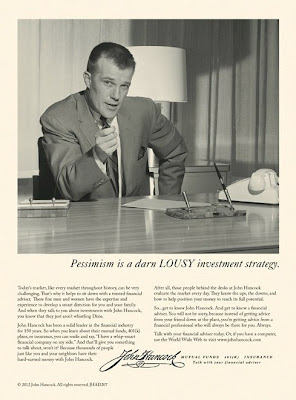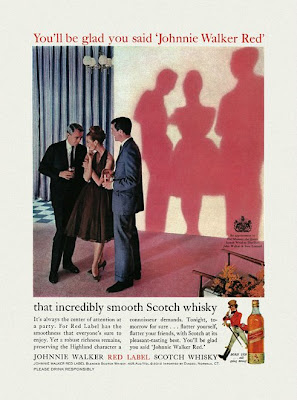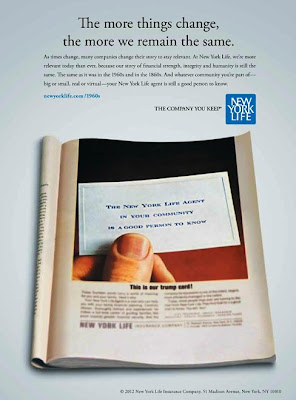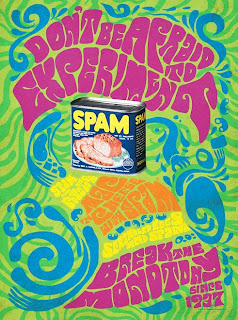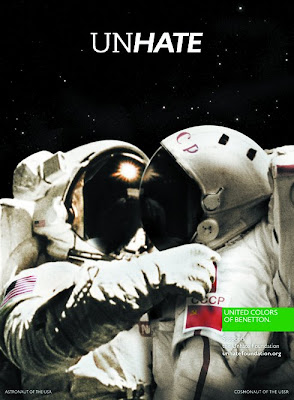 |
| Talking Heads: Chris Frantz, Tina Weymouth, David Byrne and Jerry Harrison (via Slate) |
It's always a hard call when advertisers decide to use "original" music in an ad that is heavily evocative of an established song.
Listen to this ad, and make note of any classic songs that come to mind:
Qu'est-ce que c'est?
Yeah, me too. But is it plagiarism? That's for lawyers to decide.
From inside the ad agency world, I can tell you exactly how this went down. Creative teams often draw inspiration from songs they like. The ones with very healthy budgets, and willing rock stars, may actually get the chance to licence that song. But that's the exception.
Often, the song even gets used in the creative presentation, or in the case of a TV ad, it might be used to score the animatic. (A moving storyboard, used in pre-production.) Even early edits may have that song in them, just to help with pacing and tone.
But if the song is, ultimately, unattainable, the team eventually needs to brief a commercial composer. These briefings often include "something like [name of song or artist]" or the song itself may be used as an example in the briefing. This is normal.
For example, when we were doing a government of Canada ad a few years ago, I briefed the composer using Arcade Fire videos. However, I didn't say "make it sound like Arcade Fire," or "Make it sound like 'The Suburbs' or 'We Used to Wait'," I told told him I wanted "a contemporary alt-rock sound that will appeal to 20-somethings but still be appropriate for a government job training ad." The result was just what we wanted, but it was its own thing.
Even emulating a distinctive style can be problematic. In 1992, Tom Waits sued Frito-Lay for hiring a singer who sounded like him for an ad. He was awarded more than two million dollars.
The Motorola case is a little less open and shut. But it did catch the attention of Talking Heads/Tom Tom Club drummer Chris Frantz. Chris is married to Bassist Tina Weymouth, who wrote the bassline that the ad music partially emulates.
Chris asked his Facebook network, "My friends, if you have a moment, please click on this link and scroll down to "Play Video." Play the video and please tell me your thoughts. Thanks."
The verdict by friends and fans was that they didn't just hear "Psycho Killer" in the ad, but also Tom Tom Club's hit "Wordy Rappinghood."
Some felt it was a stretch. But at a time when Sam Smith willing pays Tom Petty and Jeff Lynne for "accidentally" lifting the structure of a hit song, or Robin Thicke and Pharrel try to pre-emptively sue the family of the artist they were "inspired" by, these are high-stakes issues.
What do you think?
































